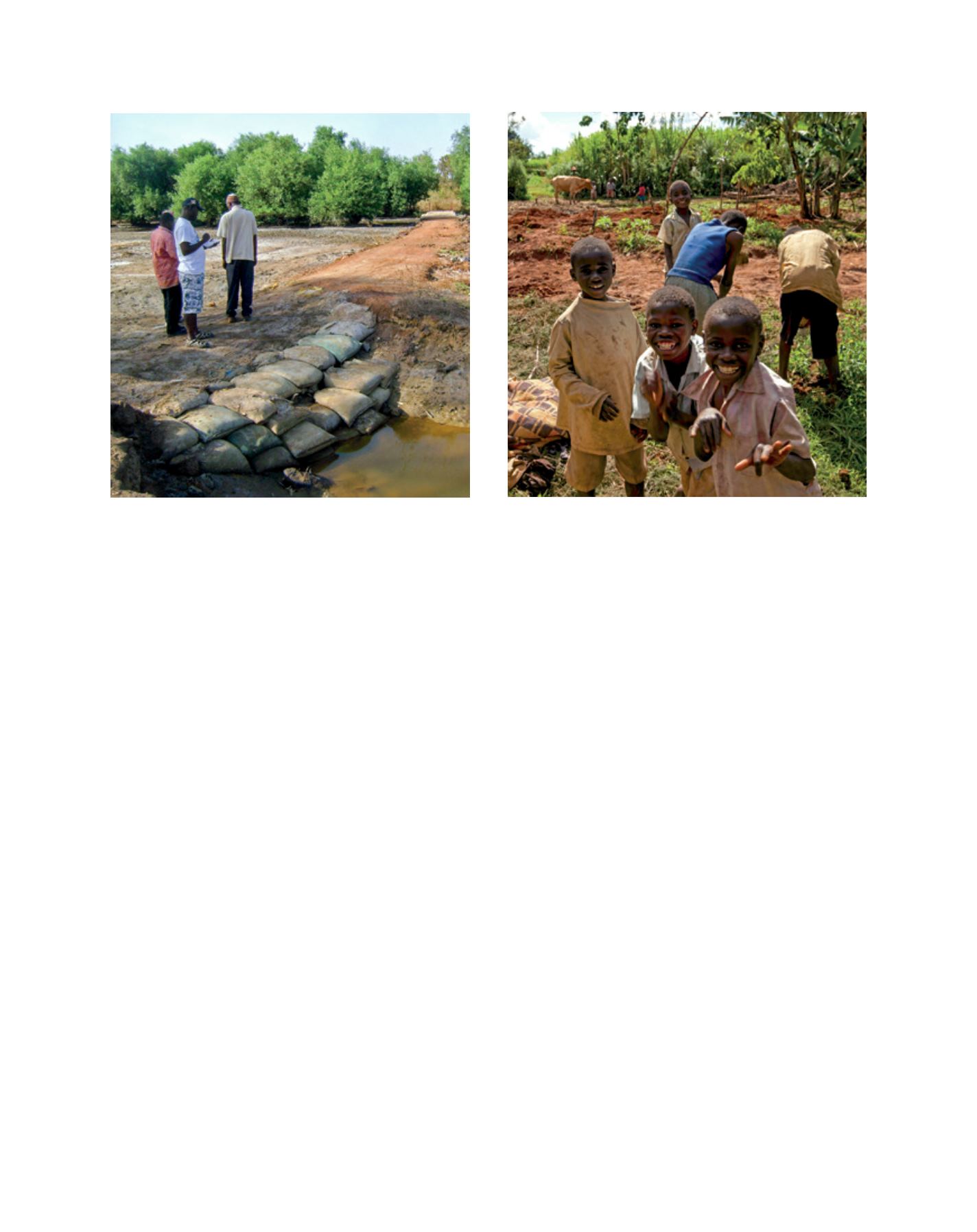

[
] 186
Uganda uses volunteer mentors to transform gender relations
within the household. Participating households have reported
not only increased household income and food security, but
also improvements in women’s decision-making influence and
more harmonious household relations.
Investment in family farming can also empower young people.
Given that the majority of poor young people are still living in
rural areas, finding ways to enable young rural women and men
to obtain decent livelihoods must be a priority. Although young
rural people will have to be key players if global agriculture is to
meet the diverse challenges it will face in the coming decades,
the present absence of employment opportunities in rural areas
is one of the primary reasons young people are migrating at
unprecedented levels. This deprives rural communities of their
most energetic and innovative members. But there is poten-
tial to create productive opportunities for young rural people,
which can provide a viable alternative to migration and ease
pressure on saturated labour markets.
In Egypt, the IFAD-supported West Noubaria Rural
Development Project has provided unemployed young people
with small plots of farmland in newly reclaimed desert lands
outside the Nile delta. These new farmers have received training
and technical support, and marketing associations have been set
up to help them compete with larger-scale farmers. Nearly 45,000
young graduates have benefited from this project, which has
created more than 60,000 permanent and 80,000 seasonal jobs.
In Senegal, the IFAD-supported Project for the Promotion
of Rural Entrepreneurs has provided youth-sensitive capacity
building for producer organizations in selected poor regions. It
has offered training for business development service provid-
ers, with a focus on enabling young entrepreneurs to access
services. Thus far, 1,500 new enterprises and 4,000 jobs have
been created, 63 per cent of which have been for young people.
Increasingly, investment in family farming is coming from
family farmers themselves and from other private sector actors
involved in agricultural value chains. Many IFAD-supported
projects already involve partnerships between groups of farmers,
cooperatives, processing or marketing companies and commer-
cial banks or microfinance institutions. In addition, there has
been widespread commitment from governments to broaden
public investments in agriculture, which also supports efforts
to reduce poverty. Generally, however, governments have
reduced direct investment, shifting their focus to facilitating
investment by farmers themselves and other private enterprises.
Remittances also play an important role in fostering investment
in family farms. IFAD’s multi-donor Financing Facility for
Remittances demonstrates notable examples deriving from 50
remittance-related projects in some 40 countries, which have
tested innovative mechanisms and products. For example,
the Philippines’ Atikha Overseas Workers and Communities
Initiatives Inc., through an IFAD co-financed grant, has helped
change the lives of thousands of Filipino migrant investors by
means of its financial literacy training programme.
What is clear is that there can be no food and nutrition
security without family farming. A future where family
farming is at the centre of agricultural, economic, environ-
mental and social agendas will be key for promoting equitable
and sustainable development. Emerging global and national
realities present even wider opportunities and potential
returns from investing in family farming than ever before.
These realities demand new investment innovations, new
kinds of partnerships and enabling policies. IFAD, in collabo-
ration with its member states and partners, is developing new
approaches to respond to these challenges and opportunities
for family farmers in order to enable them to participate in and
benefit from inclusive growth, to realize the future we want.
In The Gambia, the Participatory Integrated Watershed-Management Project
is building bridges so farmers can access their paddy fields despite floods
Putting family farming at the centre of the development agenda will be key
for promoting equitable and sustainable development
Image: IFAD/Momodou Gassama
Image: IFAD/Susan Beccio
D
eep
R
oots
















